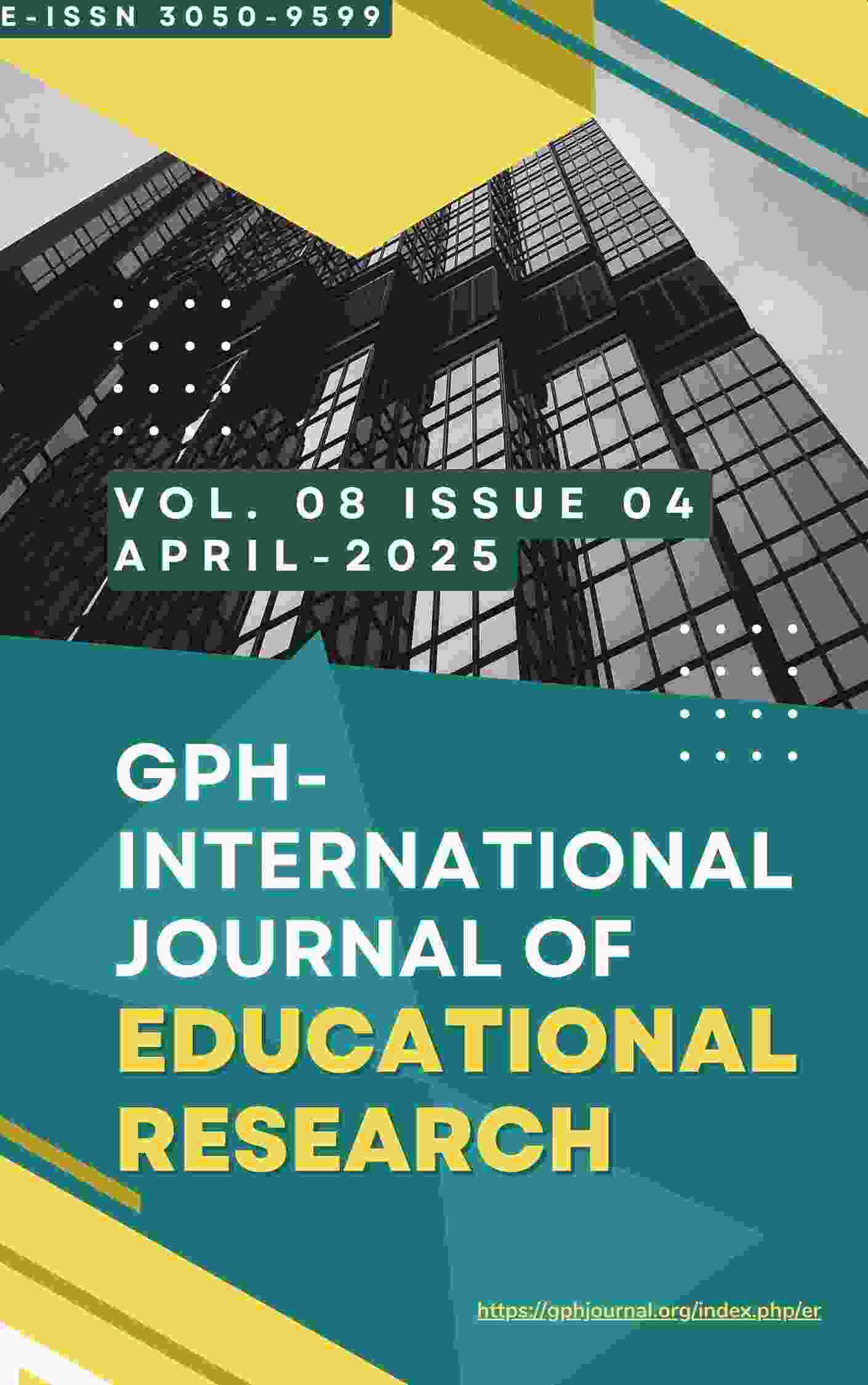Effect of model-based inquiry instructional technique on skill acquisition of pre-service integrated science teachers in Delta State
Abstract
This study sought to determine the effect of a model-based inquiry instructional technique on critical thinking skill acquisition of pre-service integrated science teachers. Two research questions and three hypotheses that were tested at 0.05 level of significance guided the study. Quasi- experimental design was used for the study because intact classes were used. The population of the study consisted of all the pre-service integrated science teachers in Nigeria Certificate in Education (NCE) in the only Federal College of Education and the two State Colleges of Education in Delta State numbering forty-three (43). The sample of the study consisted of thirty-eight (38) pre-service integrated science teachers in the only Federal College of Education and one of the State Colleges of Education which was selected using purposive sampling technique in order to train more pre-service teachers. The two Colleges of Education (one Federal and one State) were randomly assigned to 5E’s model based inquiry instructional technique and demonstration method of instruction using toss of coin. The study was necessitated due to the need to equip pre-service integrated science teachers with appropriate skills as specified in the new minimum standard. Hence, it became necessary to expose the male and female pre-service integrated science teachers toa model-based inquiry instructional technique in order to equip them for the task ahead. The Test of Critical Thinking (TOCT) developed by the researchers and found to be valid and reliable were used for data collection. The groups received pre-test and post-test independently. The research questions were answered using mean and standard deviation while Analysis of Covariance (ANCOVA) was used to test the hypotheses. The findings revealed that 5E’s model -based inquiry was more efficacious than the demonstration method of instruction in bringing about pre- service integrated science teachers’ critical thinking skill acquisition required for the 21st century amongst others. Based on the findings it was recommended amongst others that the National Commission for Colleges of Education (NCCE) should incorporate 5E’s model -based inquiry instructional strategy in the Nigeria Certificate of Education (NCE) minimum standard.
Downloads
References
Aina, J. k. (2014). Pre-service teachers’ training: The case study of Colleges of Education in Nigeria. Open access library journal 1: e1070.
Colman, U. B. (2014). Enhancing students’ creativity innovation, science, technology and mathematics teaching. 55th conference proceedingsof STAN, 61-74
Danladi, S. (2017). Effect of model-based inquiry instructional technique on achievement, skills acquisition and interest of pre-service chemistry teachers’. A published PhD thesis, university of Nigeria Nsukka
Ezeh, D.N. (2013). Science without women a paradox. 75th inaugural lecture delivered on May, 30th in University of Nigeria Nsukka. Published by the University of Nigeria senate ceremonial committee.
Ezema, M. D. (2011). The emerging world order and challenges of science, technology, engineering and mathematics education. Proceedings of the 50th conference of science Teachers Association of Nigeria, 37-41
Federal Republic of Nigeria (2004) National policy on education. Ministry of Information, Printing Division, Lagos.
National Commission for Colleges of Education, (2020). The Nigeria Certificate in Education Minimum Standard
National Policy on Education (2018). http://www.emeraldinsight.com /10.1108/00242539410134589
Nwosu, A. A.(2015). Science education for life in a dynamic world. An inaugural lecture of the university of Nigeria ,Nsukka.
Omiko, A. (2015). Impact of instructional scaffolding on students’ achievement in chemistry in secondary schools in Ebonyi State of Nigeria. International Journal of Education Learning and development. 3(7) 74-83, Editor.ijeld@ea-journals.org
Pollyn, I. B. (2014). PICO STEM SHEEP # Network-dimension of creativity: a panacea for educational challenges, poverty reduction and diseases control in the 21st century. 55th conference proceedings of STAN, 25-35
Yang, X. (2015). Rural junior secondary school students’ perception of classroom learning environment, their attitude and achievement in mathematics in west China. Learning environment research, 18 (2), 249-266
Author(s) and co-author(s) jointly and severally represent and warrant that the Article is original with the author(s) and does not infringe any copyright or violate any other right of any third parties, and that the Article has not been published elsewhere. Author(s) agree to the terms that the Global Publication House will have the full right to remove the published article on any misconduct found in the published article.























